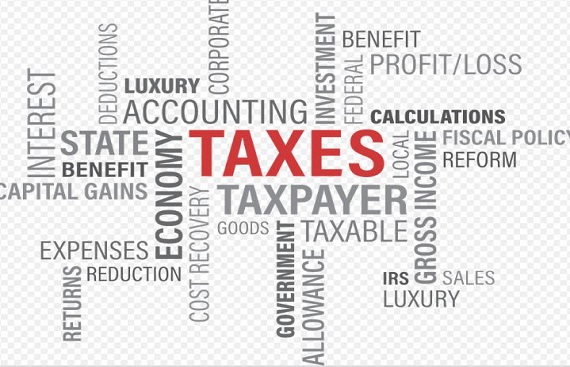What Happens If You Owe The IRS More Than $25000?

If you've recently filed your federal income tax returns and owe more than $25,000 to the Internal Revenue Service (IRS), it's important to understand what happens next. Generally speaking, debt owed to the IRS is treated differently than debts owed to other entities such as banks or credit card companies. It's crucial that you deal with unpaid tax debt in a responsible manner so that you can protect yourself from additional problems down the road including potential jail time for criminal conduct related to past due taxes and wages garnishment if not addressed promptly.
In this blog post, we will discuss how owing more than $25,000 impacts taxpayers, paying off large amounts of back taxes versus installment agreements, and steps that should be taken by those struggling with significant IRS debt.
What Do You Need To Know About The IRS Collection Process?
If you owe more than $25,000 to the IRS, it is important to understand the collection process and what you can do to resolve the debt. In this segment, we will explain the various steps involved in the IRS collection process and what actions you need to take if ever issued a notice from them.
A. Explanation Of The Various Steps Involved In The Collection Process
The IRS collection process typically involves the following steps:
- Initial Notice: The IRS will send a notice demanding payment of the tax debt. This notice will provide information on the amount owed, how to pay, and the due date.
- Second Notice: If payment is not made within the specified time frame, the IRS will send a second notice, which will include additional penalties and interest charges.
- Final Notice: If the taxpayer still fails to pay the debt, the IRS will send a final notice, which may include further penalties and interest charges, as well as a threat of wage garnishment or seizure of assets.
- Levy: If the taxpayer does not respond to the final notice, the IRS may proceed with a levy, which allows them to seize assets, including wages, bank accounts, and property.
- Lien: A tax lien is a claim by the government on the taxpayer's property, including real estate, to secure payment of the tax debt. A tax lien can negatively impact the taxpayer's credit score and make it difficult to sell or refinance the property.
B. Understanding The Notices And Warnings Issued By The IRS
It is important to respond to any notices and warnings issued by the IRS, as they can escalate quickly and result in severe consequences, such as wage garnishment, seizure of assets, or a tax lien.
C. What To Do If You Receive A Notice From The IRS
If you receive a notice from the IRS, it is important to take action immediately. Here are a few steps you can take:
- Review the notice carefully to understand the amount owed, the due date, and the payment options available.
- If you disagree with the amount owed, you can request a hearing or file an appeal.
- If you are unable to pay the full amount owed, consider negotiating a payment plan with the IRS.
- Seek professional help from a tax attorney or enrolled agent if you need assistance in resolving the tax debt with programs like the IRS Fresh Start Program.
Penalties And Interest: The Consequences Of Failure To Pay Taxes
If you owe taxes to the IRS, it is important to understand the penalties and interest that can be added to your tax debt. In this section, we will explain the penalties for failure to pay taxes, the interest charged on the unpaid tax amount, and how these penalties and interest can increase the total amount owed.
A. Explanation of Penalties for Failure to Pay Taxes
The IRS imposes several penalties for failure to pay taxes, including:
- Failure to File Penalty: If you do not file a tax return by the due date, you may be subject to a penalty equal to 5% of the amount owed for each month that the return is late, up to a maximum of 25%.
- Failure to Pay Penalty: If you do not pay the full amount owed, you may be subject to a penalty equal to 0.5% of the amount owed for each month that the debt remains unpaid, up to a maximum of 25%.
- Estimated Tax Penalty: If you do not make sufficient estimated tax payments throughout the year, you may be subject to a penalty equal to 5% of the underpayment.
B. Interest on the Unpaid Tax Amount
The IRS charges interest on the unpaid tax amount. The interest rate is determined quarterly and is based on the federal short-term rate, plus 3%. The interest compounds daily, meaning that the interest owed increases each day that the tax debt remains unpaid.
C. How the Penalties and Interest Can Increase the Total Amount Owed
The penalties and interest charged by the IRS can quickly increase the total amount owed. For example, if you owe $10,000 in taxes and do not make a payment, the failure to pay penalty can add $50 to the debt each month, and the interest can add hundreds of dollars to the debt each year. As the penalties and interest accrue, the total amount owed can quickly become unmanageable.
Payment Options: Choosing The Right Option For Your Tax Debt
If you owe taxes to the IRS, it is important to understand the payment options available to you. We will discuss the advantages and disadvantages of every payment alternative available to you while also helping you determine which option is best suited for your unique needs.
A. Pros and Cons of Each Option
1. Full Payment:
Pros: The debt is paid in full and the taxpayer is free from the tax debt.
Cons: The taxpayer must come up with a large lump sum payment.
2. Installment Agreement:
Pros: The debt is paid over time, allowing the taxpayer to make more manageable payments.
Cons: Interest and penalties continue to accrue, increasing the total amount owed.
3. Offer in Compromise:
Pros: The taxpayer can settle the debt for less than the full amount owed.
Cons: The process can be lengthy and there is no guarantee that the offer will be accepted.
4. Currently Not Collectible:
Pros: The taxpayer receives a temporary reprieve from collection action.
Cons: Interest and penalties continue to accrue, increasing the total amount owed.
B. How to Choose the Right Payment Option for Your Situation
The right payment option for you will depend on your financial situation. If you have the financial means to pay the debt in full, this may be the best option. If you cannot pay the debt in full, an installment agreement or partial pay installment agreement may be a more manageable option. If you are experiencing financial hardship, you may be eligible for a Currently Not Collectible status or an Offer in Compromise.
Final Thought:
Owing the IRS more than $25000 can have some pretty severe consequences. If you find yourself in this situation, the best solution is to take swift action and consult with a professional. With their help, you can get your taxes sorted in no time and dodge any serious repercussions.
Read More News :
Sid Sarasvati's Odyssey from Bombay to Boston: A Tale of Tech Innovation and Leadership

.jpg)

